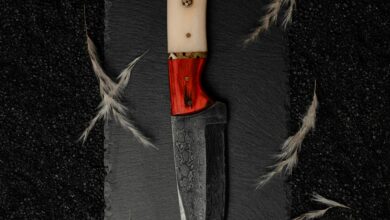10 Best Duck Hunting Dogs: Top Hunting Companions
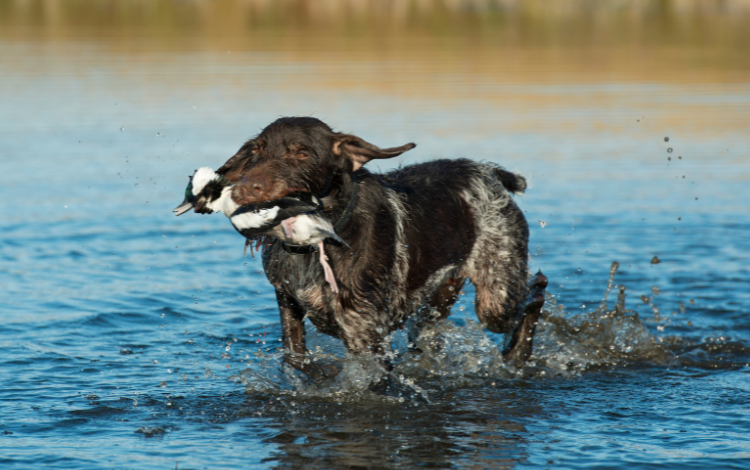
Having a well-trained companion at your side while hunting can make a ton of difference. I feel that the act of hunting alongside a furry companion has a special charm that every hunter should experience.
But, not all dogs have the right pedigree to perform as waterfowl dogs. Buying a pup can be a gamble and you need to do the right amount of research to stack the odds in your favor. The first step towards that is choosing the right breed.
To help you out, here is a closer look at the 10 best duck hunting dogs.
1. Labrador Retriever
It is not without reason, that the iconic Labrador Retriever has topped the list of the most popular dog breeds in the US for 31 long years. This friendly and high-spirited Lab has an excellent temperament to act as a family dog and is equally good as a bird-hunting companion. Plus, they are quick learners and intelligent enough to manage tricky situations.
Beyond these traits, Labs are strong and sturdy dogs and can handle hard work on the field like champs. Most Labs love water and their thick, double-layered coat keeps them warm in cold water. While another breed may get tired at the end of a long day, a Lab will be ready to fetch a drowned bird from an icy waterbody.
Even though not all of them may have the same level of skill and energy, it is hard not to love a Lab, Make sure that your pet is getting enough exercise as Labs tend to gain weight quickly.
2. Chesapeake Bay Retriever
The physical attributes of a Chesapeake Bay Retriever are similar to that of the Labrador Retriever and many people struggle to differentiate between the two.
But when it comes to personalities, the two are distinctly different. The Chesapeake or the Chessie is not happy-go-lucky and playful like the Lab and has a more protective mindset. But that makes them better guard dogs than Labs.
Since the breed has evolved as waterfowl dogs they have natural retrieving instincts. A Chessie can swim through ice-cold waters and remain focused on the task even in rough conditions. Being highly intelligent and trainable, Chessies are often used in search-and-rescue operations and bomb-sniffing units.
When it comes to surviving cold conditions in a hunting environment, the Chessie is hard to beat. The thick, oily coat makes them highly tolerant to cold-weather conditions and their high energy levels allow them to spend long hours in the field. Overall, the Chessies are amazing duck-hunting dogs. But they need a thoughtful and experienced owner for proper training.
3. Golden Retriever
Even though they were originally bred as hunting dogs, Golden Retrievers have emerged as one of the most popular family dogs in the US. Being family-friendly and outgoing, they make great pets.
Both in terms of size and trainability, the Goldens are great hunting dogs. But in some ways, they are better suited for retrieving upland birds.
While they have strong retrieving drives, the Goldens are not the best water dogs. Their coats take longer to dry off and trapped water can cause moist dermatitis. So, they will require more grooming than Labs. Also, avoid hunting in areas that have a heavy Cocklebur infestation as the long-haired Golden picks up the burrs easily.
That said, I have seen many Goldens being excellent waterfowl retrievers. These are field-bred Goldens that have a shorter coat and have been introduced to water properly.
Just like Labs, they have a well-muscled neck to carry a large waterfowl in choppy conditions. Besides, they are smart enough to handle any new hunting situation both in water and on land.
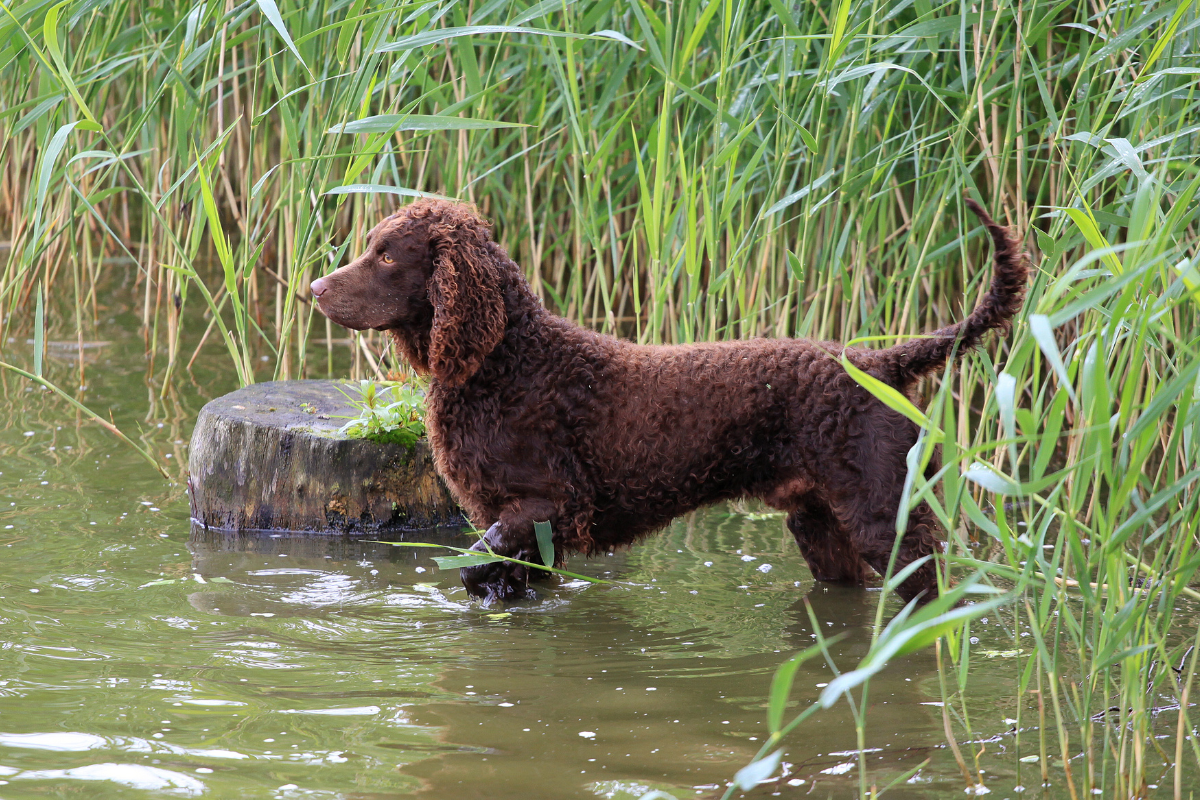
4. American Water Spaniel
With a great temperament and excellent agility, the American Water Spaniel excels in waterfowl environments. While they are small in size, the AWS compensates with its big drive for hunting. They are active learners and have excellent scenting ability. Introducing them to new ideas or hunting tools like duck decoys is not a tough task.
The fact that they were bred to hunt from small boats makes them excellent swimmers. Just like the Chesapeake Bay retriever, the American water spaniels have a thick double coat that allows them to withstand cold conditions. The AWS is a highly energetic breed and can spend hours in the water while retrieving.
Because it has strong hunting instincts the American water spaniel does not miss a beat during upland pheasant and dove hunting trips either. Its affectionate personality makes the AWS a great family companion as well. Just make sure that you give them enough daily exercise to burn off the high energy.
5. Boykin Spaniel
When the Boykin Spaniel was bred in South Carolina for waterfowling, the hunters wanted a dog that could easily move in and out of small boats moving through the swamps.
Thanks to its compact size, the Boykin Spaniel was great for that role. While they are a happy breed with a lot of bubbling enthusiasm, the Boykin is a tough customer when it comes to hunting.
The Boykin are versatile and can shift from the field to the water without missing a beat. Even though they are small, the Boykin are tenacious enough to retrieve large geese when trained properly.
Note that a Boykin does not prefer cold waters and is not the best choice for late-season sea duck hunts. But they perform very well even when the conditions are scorching during a warm spell.
Boykins are intelligent and easy to train, but they can be wilful and test their owner’s patience at times. So, they need more finesse and patent handling than an average Lab during the training phase. Also, with their high-energy levels, the Boykin is not the right choice as a pet dog leading an idle life.
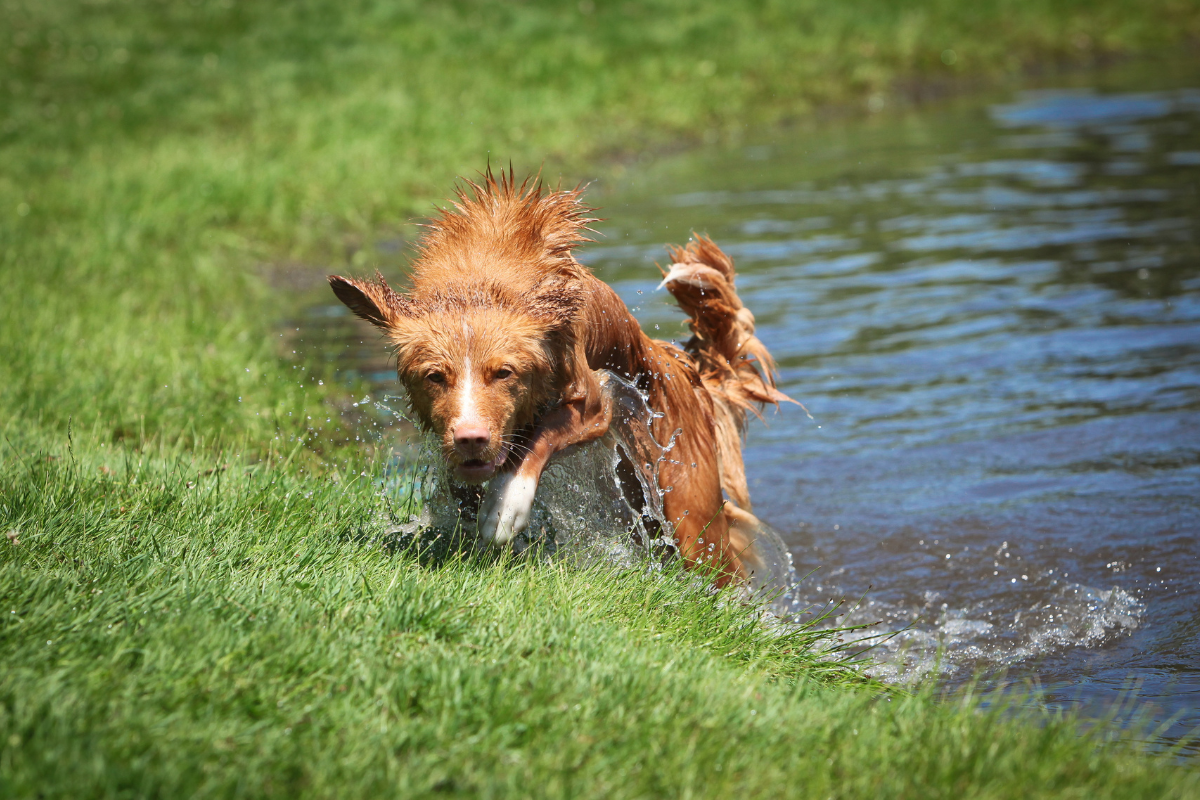
6. Nova Scotia Duck-Tolling Retriever
The vibrant red coat of the Toller looks similar to that of a golden retriever, though it is a smaller breed and is better suited for luring rafted ducks. One theory suggests that their reddish coat resembles that of the red fox, an animal that the ducks are naturally attracted to. The idea was to play fetch with the dog on an open shoreline to attract the ducks.
The Toller is a true “hunter’s dog” and the desire to retrieve comes to him naturally. Their athleticism and cold-weather tolerance make them ideal for almost every kind of waterfowling situation. In addition. they have a lot of versatility and can work as upland flushing dogs too.
The Toller has abundant energy, but their joyous and friendly disposition makes them ideal indoor companions for a lazy day too. Since their temperament can be a mixture of stubborn and soft, Trollers need an experienced trainer with a lot of patience.
7. German Wirehaired Pointer
Also called the “GWP” or “Wirehair” the German Wirehaired Pointer is well-suited for a wide range of hunting environments. Originally, the GWP was bred not only for hunting birds and small game but also for tracking larger game animals. The incredible sense of smell allows this breed to fetch waterfowl from longer distances with relative ease.
GWPs are medium-sized with a powerful build that gives them excellent field endurance. The weather-resistant coat helps them to swim through cold waters. Their high intelligence allows them to be versatile and they can be the perfect do-it-all dog with the right training.
Since they are highly protective of their family and territory, GWPs are excellent guard dogs too. But remember, they do need a lot of exercise and housetraining can be challenging as they have a strong prey drive.
8. Curly-Coated Retriever
Even though they are less popular than the Lab and Golden retriever at present, the Curly is one of the oldest retrievers bred in England. While their exact ancestry is unknown, they are eager hunting dogs and retrieve game with seemingly endless energy.
Many owners mention that the Curly is a thoughtful breed and is not high-strung like some other retrievers. Also, they are intelligent enough to work independently in various hunting situations with minimum instructions from the owner. The well-bred ones have great field ability and the thick coat allows them to tackle icy waters and punishing covers with equal ease.
A Curly takes time to mature but once he does, he will easily handle even the largest geese. The breed is mild-mannered and affectionate while being protective and territorial as well. No matter if you are hunting from land or a boat, the Curly is a reliable and devoted hunting partner.
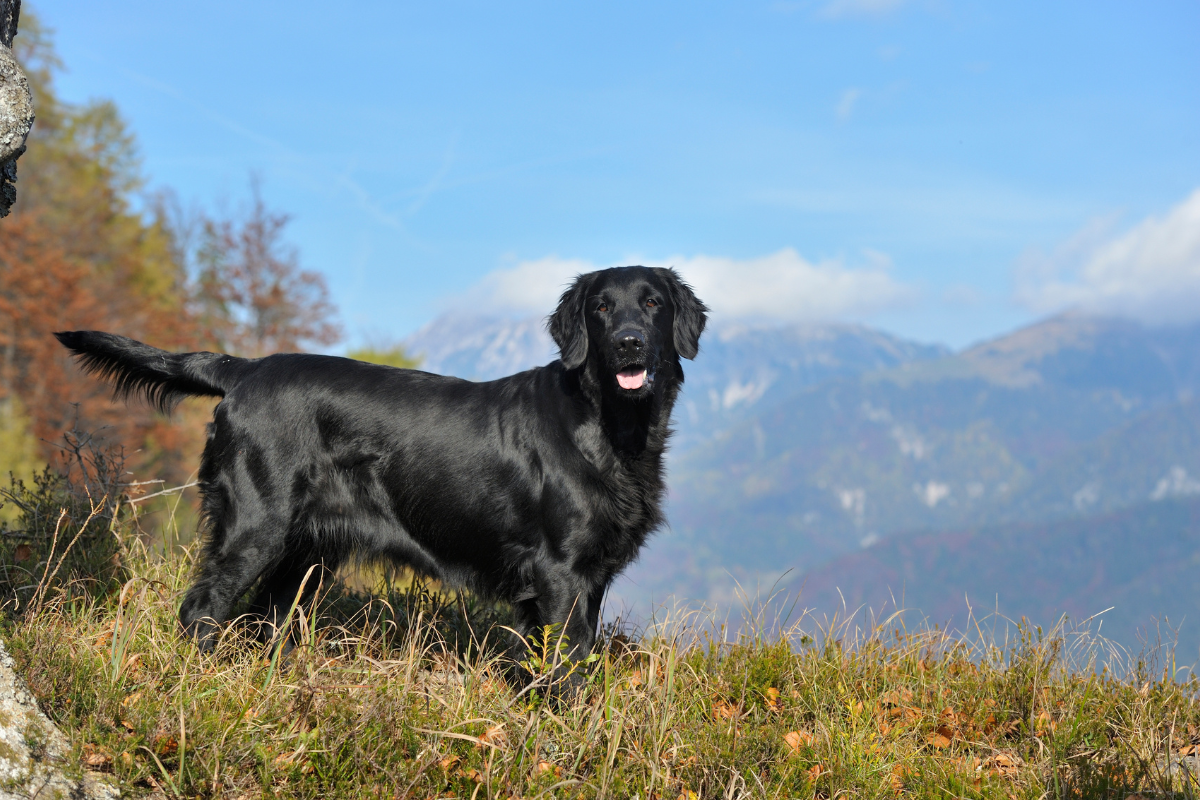
9. Flat-Coated Retriever
Flat-coats have earned the reputation of being clowns as they will do something to make you laugh, and then keep doing it. But once in the field, their hunting genes take over and they are eager to retrieve ducks or flushing birds. In fact, before the arrival of the other retrievers, the Flat-Coat was one of the most popular duck-hunting dog breeds in England.
Being tireless workers with an amazing sense of smell, Flat-Coats are great fun as hunting companions. Since they love to stay active, it is important not to let a Flat-Coat get bored. However, they tend to have a mischievous trait, which makes proper training and one-on-one attention necessary.
Unfortunately, this cheerful and lively breed has a fatal flaw- their vulnerability to cancer. So, expect the average life span of a Flat-Coat to be shorter than the other retrievers.
10. Standard Poodle
It is hard to imagine the fancy standard poodle as a hardcore hunting dog. But make no mistake, behind the “sissy” dog image, Poodles are energetic athletes with a high level of intelligence. A Poodle can make excellent use of wind and terrain to make calculated moves during retrieving. In fact, they often emerge as top performers in retriever hunting tests.
Thanks to their instincts and incredible versatility, a Poodle does not need much training to perform as a hunting dog. Their tall frame and light-footed gait make them extremely athletic and ideal for prolonged fieldwork. Plus, they are strong swimmers and have a keen nose that enhances their bird-finding ability. In terms of stamina, they can easily go neck to neck with other retrievers.
Being highly affectionate, Poodles are a great fit in family environments. Keep in mind that they are extremely loyal dogs and their hunting ability will depend on the bond you form with them.
Final Thoughts
To sum up, these are some of the best duck-hunting dogs that you can choose from.
No matter the breed you choose, dogs are not born as skilled hunters. To bring out their best hunting and retrieving abilities, consistent training is a must. So, make sure that your hunting dog has enough space to train, run, and play.
Before you buy a duck dog, find the right breeder and check out the performance of the sire and dam. For first-time buyers, relying on the recommendations of a dependable and well-informed breeder is a good idea.


